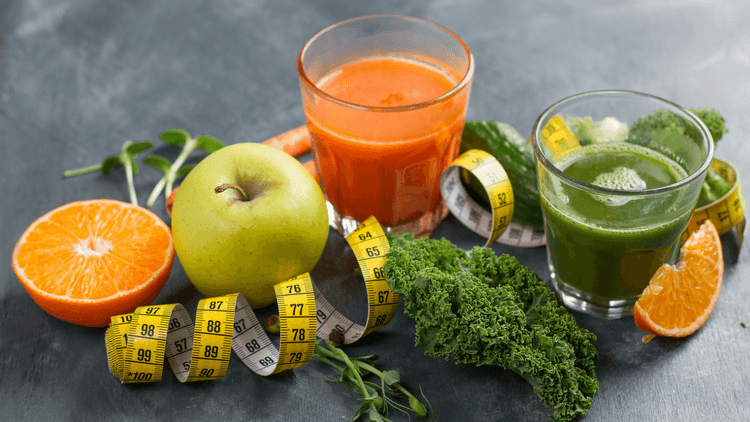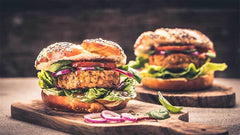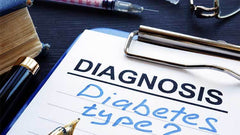
Beware! These 5 Diet “Hacks” Could Be Doing You More Harm Than Good!
Dieters, even the smartest of dieters, look for hacks, or shortcuts, to lose weight faster. Some of the most common places they find hacks is from diet gurus, or even social media celebrities. After all, if these people are using – and promoting – the hacks, they must be healthy, right?
Nothing could be further from the truth.
Everywhere you turn, you can find information about a new health craze that promises to help you lose weight or be the magic food you’ve been missing from your diet. Truth be told, none of these diet hacks are actually healthy. In fact, many are unfounded, and can even work against, or be harmful to, your efforts at a healthier lifestyle.
Dangerous Diet Hacks
Read on to learn 5 of the most dangerous diet hacks and why they might be doing more harm than good to your body!
1. Detoxing
There are countless health and fitness bloggers that suggest starting a diet with a detox. For some this means a juice cleanse, whereas others propose another combination of a liquid- and vegetable-heavy regime.
Unfortunately, there is no long-term benefit to detoxing. During the 5 to 7 days that you detox, you’ll probably experience some benefits, such as reduced bloating. However, detoxes are typically associated with lethargy, because you’re consuming dramatically fewer calories, and nutritional deficiencies, because you can’t get everything you need from one type of food alone.
As such, while you can detox, it isn’t a hack for weight loss. Think of detoxing as a short-term way to ease yourself into a healthier diet, and you’ll be in much better shape than you would be if you consider a detox a long-term way to achieve sustainable weight loss (because, spoiler alert: it doesn’t work this way).
What to do instead: You can detox at the beginning of your diet if you feel the need to. However, anything longer than a short 3-, 5-, or 7-day detox is probably doing more harm than good.
2. Eating as much protein as possible
Ever since the popularization of the paleo diet, more and more dieters think that the more protein they consume, the better. However, protein is only one of three macronutrients, and you can’t just ignore carbohydrates and fats by eating nothing but protein.
Even those who eat a standard American diet eat too much protein – between one-and-a-half to two times the daily recommended amount. And though it may not seem dangerous to consume what most consider to be the “building block” of muscles, too much protein can cause symptoms such as mood swings, brain fog, weight gain, and constipation, among others. In more severe cases, high levels of protein have been linked to kidney disease, prostate complications, and even diabetes.
What to do instead: Focus on finding an ideal balance of all macronutrients, including protein. Overdoing any nutrient can be problematic for your long-term health, and, with some relatively severe potential side effects, it’s important that you plan meals accordingly.

3. Food elimination
Any strict diet plan comes with problems. After all, if you’re too strict, it’s unlikely that you’ll be able to sustain the diet, let alone feel satisfied on it.
This calls into question certain more extreme diets. Traditionally, food elimination diets included movements like the “cabbage soup diet,” where those who followed it would eat nothing but cabbage soup. Today, food elimination diets have changed significantly. As a general example, a more popular food elimination diet in modern times is fruitarianism. While fruits are healthy, albeit high in sugar, you cannot sustain yourself on fruit alone (though some might disagree).
What to do instead: Find a flexible healthy eating plan that works for you! Remember, no diet is perfect, nor should you focus more on what you’re eliminating than on what you’re keeping in the diet. Experiment with some healthy foods, including those you’ve never tried before, to find out what you like and what you don’t. Then build a diet around them.
4. Focusing on diet alone and not exercise
While this isn’t strictly a dieting hack, it is a hack for weight loss! It’s true that diet accounts for the majority of your weight loss. In fact, many diet programs and even lifestyle bloggers will tell you that if you follow a certain diet, there’s no need to exercise. However, this just isn’t true if you want to see real results.
Exercise matters if you want to see real changes in your body. After all, a healthy diet will help you lose weight, but exercise can create calorie deficits that help accelerate weight loss, and will help ensure that you’re burning fat, not just stripping away muscle without exercising to rebuild it.
What to do instead: Incorporate exercise, even if only 2 to 3 days a week, into your healthy lifestyle routine. Doing so is a simple way to boost weight loss from fat without compromising your muscles in the process.
5 Fitness Excuses You Need to Stop Making >>
5. Relying on pre-packaged foods
There are countless diets that force you to eat the company’s food to lose weight. However, these meals aren’t healthy, nor do they offer a sustainable, healthy way to lose weight. In fact, any diet that forces you to eat their food should be avoided at all costs.
What to do instead: Find simple recipes you love full of whole foods and other nutritious ingredients. Doing so will avoid the unhealthy foods some programs promise will help you lose weight, and will help you keep the weight off long-term.
Hacks aren’t helping your long-term goals
No healthy lifestyle comes with shortcuts. And, though shortcuts can be a simple way to lose weight when you first get started, they aren’t going to lead to the long-term results you need when you’re ready to lose weight and keep it off.
A 5-Step Plan To Stop Emotional Eating In Its Tracks >>
If you’re struggling with weight loss, you can also choose to take a comprehensive weight loss supplement, like PhenQ, in place of using dieting hacks. PhenQ suppresses appetite, boosts energy, and burns fat, complementing your other healthy habits!







